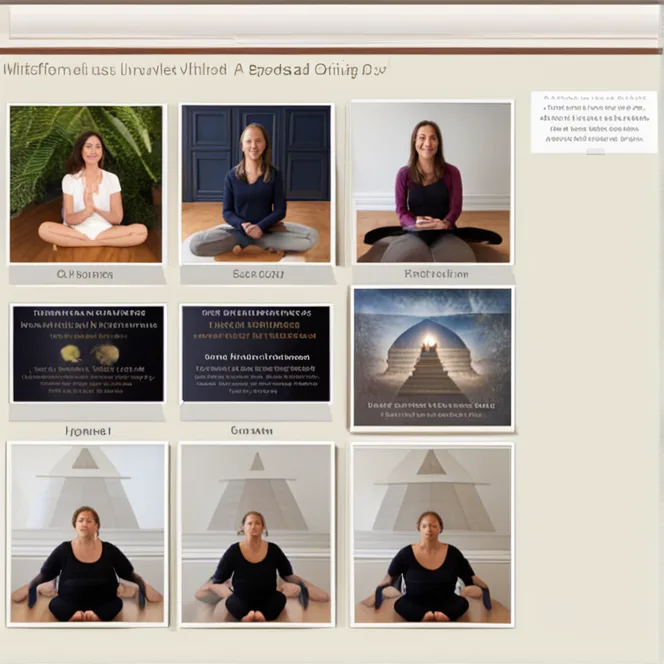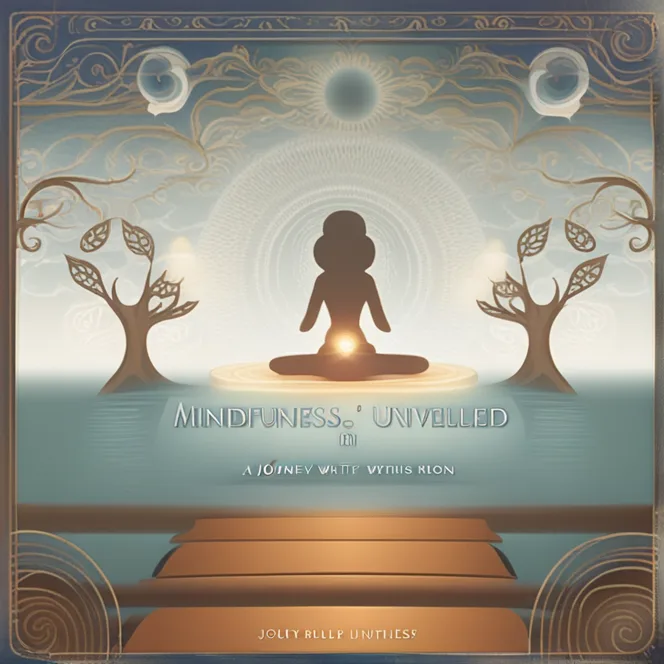
Mindfulness Unveiled: A Journey Within
Explore the essence of mindfulness in this comprehensive article, from its definition to practical applications for enhanced well-being.
article by Hina Kurosawa
The term 'mindfulness' has captured the attention of a diverse audience, from psychologists to meditation enthusiasts, offering a promising avenue for attaining peace and self-awareness. At its core, mindfulness is the practice of becoming fully present in the moment, an age-old tradition with roots in various cultural and spiritual teachings. It involves a conscious direction of our awareness away from the automatic pilot of habitual responses and towards the nuances of our experiences. The essence of mindfulness lies in experiencing each moment to its fullest, withdrawing from the autopilot mode of reacting, and transitioning into a more reflective state of being.
The Origins and Spread
Mindfulness, while popularized in the West in the late 20th century, stems from ancient practices, particularly within the Buddhist tradition. Jon Kabat-Zinn, a molecular biologist, played a pivotal role in bringing mindfulness to the mainstream with his Mindfulness-Based Stress Reduction (MBSR) program, which unveiled its benefits for stress relief and emotional regulation. The subsequent decades witnessed an integration of mindfulness into various domains, including psychology, neuroscience, and personal development, facilitating its global reach and diverse applications.

Mindfulness in Everyday Life
Everyday life offers a rich tapestry of opportunities to practice mindfulness. Whether we're eating, walking, or engaging in conversation, each act can be transformed into a mindful exercise. Mindfulness is not secluded to the cushion or yoga mat; it flourishes in the mundane. By bringing a non-judgmental and open-hearted awareness to our daily activities, we cultivate a sense of presence that enriches our life experience and fosters an authentic connection with the world around us.

Benefits of a Mindful Practice
The practice of mindfulness is lauded for its myriad health and psychological benefits. Research suggests mindfulness can improve mental focus, reduce symptoms of anxiety and depression, and promote emotional equilibrium. Moreover, mindfulness has been linked to physiological enhancements, such as lower blood pressure, improved immune response, and increased neuroplasticity. These benefits underscore mindfulness as not merely a mental exercise but as a holistic approach that positively impacts our overall well-being.
Mindfulness and Self-Awareness
A critical aspect of mindfulness is the cultivation of self-awareness. As we practice mindful observation of our thoughts, feelings, and sensations, we develop a deeper understanding of our internal landscapes. This heightened awareness can lead to profound insights into our patterns of thought and behavior, facilitating personal growth and self-regulation. Through the lens of mindfulness, we can discern the impermanence of our experiences, cultivating a sense of equanimity in the face of life's fluctuating circumstances.

Challenges on the Mindful Path
Embarking on the journey of mindfulness can present its challenges. Modern life, with its constant demands and distractions, can deter the focused awareness that mindfulness requires. Moreover, confronting uncomfortable thoughts and emotions during mindful practice can be disconcerting for some. Nevertheless, consistently facing these challenges fortifies the practice of mindfulness, transforming it from a remedial activity into a transformative life skill that can enable us to encounter adversity with grace and resilience.
Mindfulness as a Lifelong Practice
Mindfulness is not a destination but a path, a continuous practice that evolves and deepens over time. It draws its strength from consistency and adaptability, adapting to each individual's unique journey. Whether integrated into daily routines or dedicated practices like meditation, mindfulness offers a sustainable approach toward living a more engaged and conscious life. By dedicating ourselves to the pursuit of mindfulness, we invite an enduring sense of peace and increased self-awareness into our lives.
Published: 12/8/2023
Modified: 12/8/2023
More predictions
Come back here soon to learn more about yourself and your future


Mindfulness vs. Meditation: Understanding The Distinction
Explore the subtle differences between mindfulness and meditation, and learn how they contribute to your well-being in this insightful article.


The Synergy Of Mindfulness & Technology
In the age of constant connectivity and digital distractions, the quest for inner peace and mindfulness remains a timeless pursuit. It's no wonder that individuals are increasingly turning to technology to aid them on this journey. Biofeedback, a cutting-edge technology that provides real-time data on physiological processes, is emerging as a powerful complement to traditional meditation practices. This article explores the fascinating synergy between biofeedback and meditation, shedding light on how these seemingly disparate worlds are converging to enhance mental well-being and self-awarenessю


Mindful Eating: A Meditative Approach To Meals
Explore the art of mindful eating as a meditative practice to enhance awareness and appreciation of food, improving your overall well-being and relationship with meals.